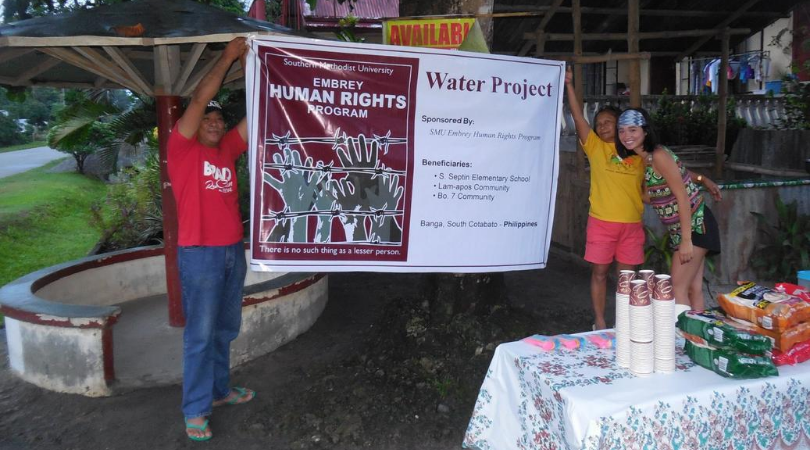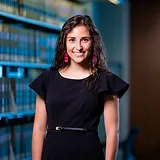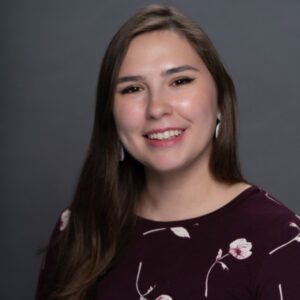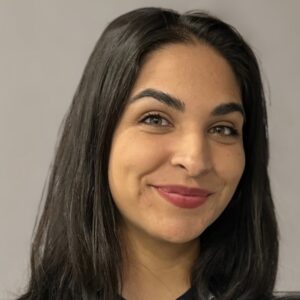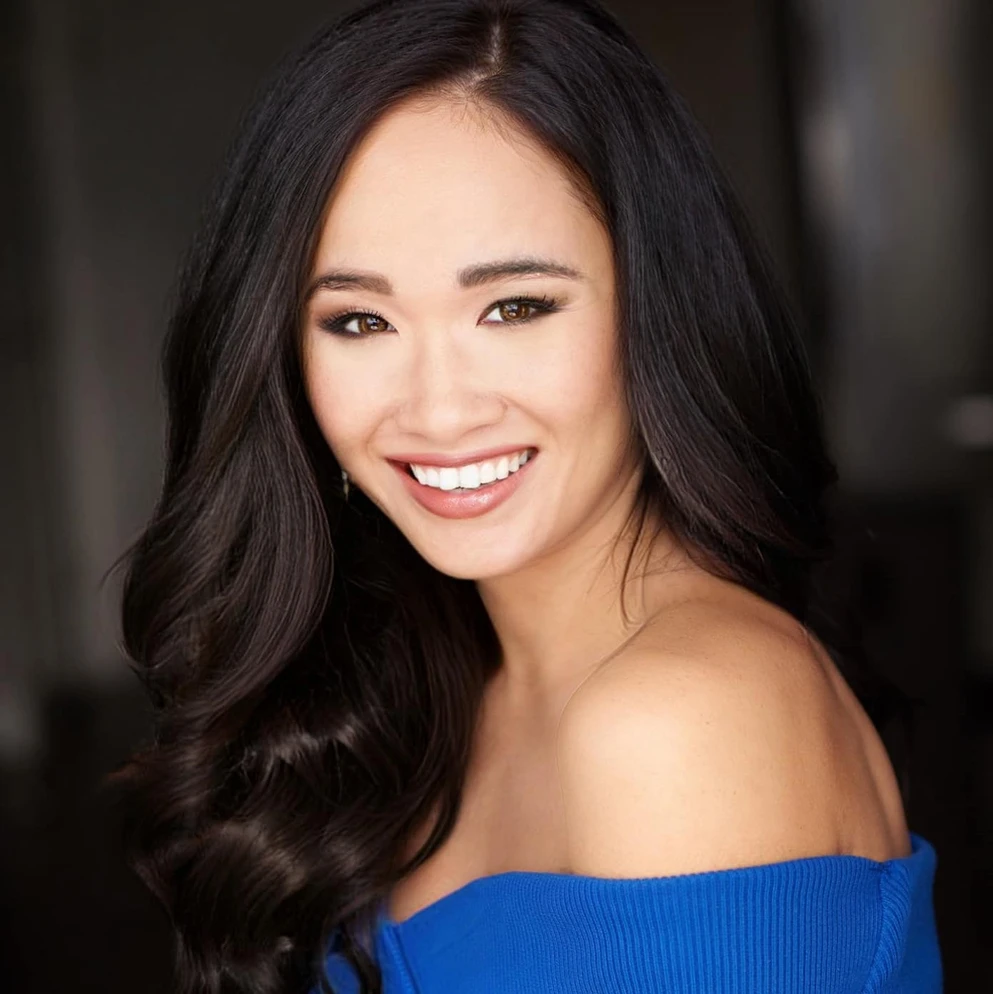
Averie Bishop simply phrased her approach to life as “if not me, then who?” She has guided herself into new territory with this concept in mind. Averie was the first Asian American Miss Lufkin (2019) and Miss Dallas (2020) as part of the Miss America pageant circuit. She is a first generation law student and the daughter of an immigrant. Averie and her mom created the Tulong Foundation, a nonprofit geared towards funding girls’ education in the Philippines. She is also a contracted Tik Tok content developer, tackling conversations about stigma within the Asian American community while infusing humor. In each of these capacities, Averie emphasizes the importance of representation, especially for Asian American women—each time asking herself “if not me, then who?”
Averie was born and raised in McKinney, Texas, a suburb of North Dallas. When Averie was young, McKinney was much smaller, predominantly white community. McKinney was so small that Averie was bussed to nearby Prosper ISD—an even smaller town at the time—for all thirteen years of her primary education. She described her family at the time as middle income, living off of food stamps for the first two years of her life. As she started to grow older, Averie noticed that she did not see herself in her friends of her teachers; she was one of only three Asian American students in her class. Put bluntly, Averie felt suffocated politically and socially. By the time Averie was twelve, she knew she would devote her career to equal representation.
It was difficult for Averie to pick out a single role model. She shared her enthusiasm for Beyoncé, speaking about the singer’s musical interpretation of life as a woman of color—and as a Texan. She also admires Ruth Bader Ginsburg (the Notorious R.B.G., as she called her), a Supreme Court Justice on the frontier of women’s rights and equality. But above all, Averie credits a majority of her admiration to her first role model: her mom.
Averie’s mom is a living example of the ever-changing “American Dream.” Her mother was born in the Philippines, living in extreme poverty. By the age of nine, Averie’s mom was forced to take on a motherly role to her many siblings—stealing toothbrushes or food just to survive. As she grew up, Averie’s mom recognized the power of education. In an effort to secure one, Averie’s mom moved in with a wealthy family. Everyday, Averie’s mom would make breakfast for this family, prepare the children for school, and then attend school herself. After school, she returned home to nanny the children and serve dinner. Only after all of these tasks did Averie’s mom have the time to study—surviving off of three or four hours of sleep. Yet, despite these obstacles, Averie’s mom graduated as the valedictorian of her high school class. Averie admires her mother’s hustle, saying “[s]he created opportunities despite the world working against her.”
In addition to being Averie’s first role model, she also credits her mother as her inspiration to become an immigration reform advocate. Averie’s mom did not have her U.S. citizenship when originally migrating to the United States. While in middle school, Averie remembers her mom staying up all night studying for her naturalization exam. Politics—mainly immigration reform—became front and center for her family. Averie witnesses the ramifications of the immigration process firsthand, noting that the system itself is difficult to navigate. Particularly, Averie explains that applying for citizenship is costly, both in the sense of money and time. Watching her mother seek citizenship inspired Averie to become more engaged in politics and the Philippine culture.
Averie wanted to immerse herself in her mother’s culture, so she decided to study aboard in the Philippines when she was fourteen. While there, Averie studied with girls who faced incredible adversity in school. Some girls were unable to afford the school’s tuition fees, some girls were forced to walk eight miles daily because they could not afford transportation. Other girls could only attend school two days a week because their family needed them at home to work. Witnessing the obstacles her classmates faced combined with her mom’s own upbringing inspired Averie and her mother to give back. This was the catalyst for the Tulong Foundation.
The Tulong Foundation is an international nonprofit dedicated to providing aid to low-income communities in the Philippines. Specifically, the Tulong Foundation provides four critical services: tuition scholarships for girls, freshwater pumps, safe sex education programming, and micro-entrepreneurial loans to women-owned small businesses. Neither Averie nor her mom had experience creating nonprofits, but each felt a need to give back to the community that raised them. The Foundation received recognition for its work at the Clinton Global Initiative Conference and the SMU Embrey Human Rights research grant program. The Tulong Foundation now serves as the philanthropic base for Averie’s pageant career.
At age 19, Averie competed in her first pageant. Her mom had recommended she participate in the Miss Asian World circuit, a series of pageants dedicated to Asian American culture. To her surprise, Averie was crowned Miss Teen Asian American 2017. Following her term in this role, Averie began to look for more pageants in her area. She noticed a lack of Asian American representation in the Miss America pageant circuit. She again asked herself “if not me, then who?” Averie competed and secured the title of Miss Lufkin 2019. She then competed in the Miss Texas competition—the next step towards the Miss America pageant itself—and earned the first runner-up title. In 2020, Averie decided to compete for Miss Dallas—and to no surprise—won the title. Averie became the first Asian American Miss Dallas. Her societal impact focuses on building visibility for the Asian American community here in North Texas and expanding Tulong Foundation’s impact.
On top of running a nonprofit and participating in pageants, Averie is also a full-time student. Averie graduated from Southern Methodist University (“SMU”) with a Bachelors of in Human Rights. Now, Averie is a rising 2L at SMU’s Dedman School of Law. Right now, Averie is still discovering what type of law she wants to practice. She is interested in immigration law, criminal law, and entertainment/media law. But Averie knows one thing for sure: she wants to be a litigator. This past semester, she took first place in her law school’s 1L Mock Trial Competition.
Growing up in a predominantly white community, Averie regularly faced microaggressions against her Asian American identity. She vividly remembers an encounter she had with an older woman in a Whole Foods market. The customer had asked Averie if she could grab an item for her off of the top shelf. After Averie assisted her, the customer complimented Averie for her “good English.” This is only one of many experiences where Averie has faced criticism for her Asian American identity. Now, Averie uses these microaggressions as a keystone in her Tik Tok Content Developer role.
Earlier this year, Averie was hired by Tik Tok as a Content Developer in the Learning Education Initiative. Through this role, Averie is connecting with viewers online about stigmatization in the Asian American community. She talks about societal expectations for young Asian Americans like studying medicine and raising a family. She breaks these topics down in educational yet humorous videos, making it easily digestible for all audiences. Viewers even create their own dialogue in the video comments, connecting with one another and asking questions. Averie has secured almost 100K followers and averages six million views per month.
Averie has set her eyes on a new goal: running for office. She plans to run for public office in the Dallas area in the next couple of years. She believes it is critical for all intersectionalities—including Asian Americans—to hold equal representation in office. Averie advises other young women to learn the power of the word “no.” Averie says, “[w]e are all go-getters. We want to give, give, give, give, give.” Averie says many folks neglect self-care in an effort to give make to others or make others like you. However, life requires balance and prioritization. She emphasizes the fact that it is okay to say no.
To learn more about Averie’s work with the Tulong Foundation, visit their website here: https://www.thetulongfoundation.org/.
